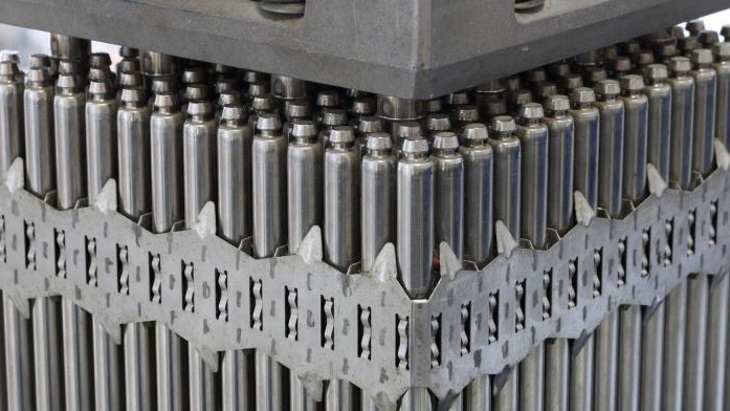Having the US patent in addition to this means they "now have access to the market of largest number of nuclear reactors in the world", CTU CIIRC said. All 94 nuclear reactors in operation in the USA, and the two under construction, will be able to use this patented method of protecting the surface of fuel rods from corrosion, which will extend the life of fuel rods under both emergency and standard conditions, it added.
The solution was patented in the Czech Republic in 2015 by Radek Škoda, Jan Škarohlíd (then with the Faculty of Mechanical Engineering of the Czech Technical University) and Irena Kratochvílová, František Fendrych, Andy Taylor (from the Institute of Physics of the ASCR).
"The unique solution is based on covering the surface of fuel rods with a thin polycrystalline-diamond layer. A very thin layer of diamond nanocrystals significantly worsens the conditions for corrosion of the zirconium substrate in a nuclear reactor, even by tens of a per cent," Kratochvílová said.
"The anti-corrosion effect of a polycrystalline diamond coating is very specific: in addition to limiting the direct contact of the metal substrate with the environment, carbon penetrates from the diamond layer into the substrate with increasing temperature and changes its physical and chemical properties. This reduces the probability of zirconium corrosion and water penetration."
The Fukushima Daiichi nuclear power plant accident in Japan inspired their research, CTU CIIRC said. The patent was supported by further research and extensive tests within the so-called TA CR project in cooperation with the US company Westinghouse. Researchers applied for a US patent in 2016 and this month it was confirmed by the US Patent Office.
The primary goal of the research was to reduce or prevent high-temperature oxidation of zirconium in emergency situations with temperatures above 800 degrees Celsius. During this exothermic reaction, a huge amount of heat is released, but also hydrogen, which can explode, corroded zirconium rods can crack and release radioactive substances into the primary circuit. The release of heat also further complicates the cooling of the core and enhances the further course of high-temperature oxidation of the zirconium alloy. According to the patent, this type of corrosion of zirconium alloys is reduced by covering the outer surface of the nuclear fuel with a protective layer consisting of a polycrystalline-diamond layer.
"Further research has confirmed the considerable potential of this solution even at reactor operating temperatures, thereby extending the service life of the fuel, which is typically removed from the reactor due to the corroded surface and not sufficient combustion. The solution thus significantly reduces the burden to the environment," CTU CIIRC said.







_15863.jpg)







